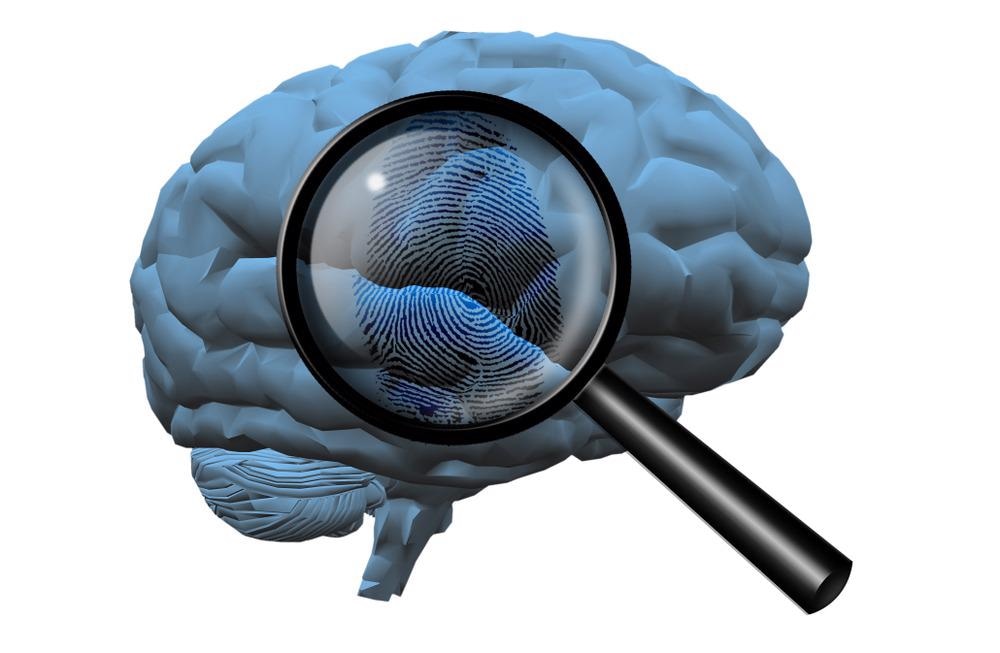Forensic psychiatry relates to a specific branch of psychiatry that deals with the interface between the law and psychiatry. Forensic psychiatrists manage patients who may be convicted or suspected of committing a crime or are thought to be a danger to the community or themselves.
Prisons, secure hospitals, and the community are all settings where a forensic psychiatrist may work. They use their understanding of the relationship between mental health and the law to ensure that people are protected such as victims and the community as well as the suspects and victims themselves, as well as facilitating the fair and just enforcement of the law.

Image Credit: Bruce Rolff/Shutterstock.com
The evolution of forensic psychiatry
The field of forensic psychiatry began with the need to investigate the mental health conditions of those convicted of crimes, often to understand what drives people to commit certain crimes and also help to understand how best to treat criminals and manage their incarceration. In the beginning, forensic psychiatrists only occasionally appeared in courts of law, and the field remained a tight-knit group of dedicated psychiatrists.
Since its early days, forensic psychiatry has now expanded greatly. It is a fully established sector of psychiatry in which doctors can specialize. Much influential research in this field has helped to transform the practice of psychiatry and has informed the workings of the law.
Four key developments have occurred that have helped to move forward the field of forensic psychology: the evolution of the understanding of the relationship between mental illness and criminality; the establishment of legal tests capable of determining legal insanity; the evolution of new therapeutic interventions for mental health conditions that offer alternatives to custodial care; and shifting public perceptions of mental health conditions in general.
These key developments have allowed forensic psychiatry to grow and become valuable not just to dealing with issues regarding primal prosecutions and the treatment of offenders but to a wider scope of issues within the broader scope of the law and mental health policy.
Mental health and crime
While mental health illnesses are prevalent across the world, they occur at disproportionately high rates in prisoner populations. According to the World Health Organization (WHO), these high rates are due to a multitude of factors: the persistent misconception held around the world that those with mental health problems pose a danger to the public; the intolerance of disturbing (albeit non-dangerous) behavior in many communities; the failure to offer sufficient treatment, care, and rehabilitation services to those who are mentally ill; and the lack of access to mental health services in most countries.
Mental health conditions often inflict a person before they are imprisoned and can be worsened by the stress of being in prison. Research has also shown that people who previously had no mental health conditions can go on to develop such illnesses due to the prison environment, sometimes due to torture and other violations of human rights.
In addition, people with mental health problems are also more likely to be the victim of a crime. Recent data estimates that having a mental health condition makes a person three times more likely to be the victim of a crime than the general population. They are also five times more likely to be the victim of an assault, a figure that rises to ten times more likely for women.
Forensic psychiatry helps develop a picture of the true nature of mental health and crime. It builds our understanding of how mental health affects those who have committed a crime, how prison can exacerbate or even cause mental illness. It helps inform policymakers, global governments, and law enforcement agencies on how to manage prisoners with mental health issues and how to run prisons so that they promote a healthier environment.
On the other hand, it also reveals how mental health can make a person vulnerable to being a victim of a crime and helps guide prevention strategies to project this population.
Ethics and forensic psychiatry
While forensic psychiatry has greatly advanced in recent decades and has become a widely respected practice, concerns around its use and ethics remain. Because of the usual doctor-patient relationship, a person subject to an evaluation by a forensic psychiatrist may be misled into believing that the same relationship applies to that relationship due to the doctor status of a psychiatrist.
In these scenarios, the doctor acts in a way to maximize the patient's benefit while maintaining doctor-patient confidentiality. The relationship between a forensic psychiatrist and a person being evaluated is not equivocal to this and it should be made clear before evaluations begin.
A forensic psychiatrist asked to perform an evaluation is not acting as a doctor, they are acting as an evaluator. They are not able to reassure the person they are evaluating or assume doctor-patient confidentiality. This issue must be addressed to ensure that the true nature of the relationship is made clear before the evaluation starts.
Continue Reading: Tattoo Analysis in Forensics
Further Reading
Last Updated: Sep 6, 2022